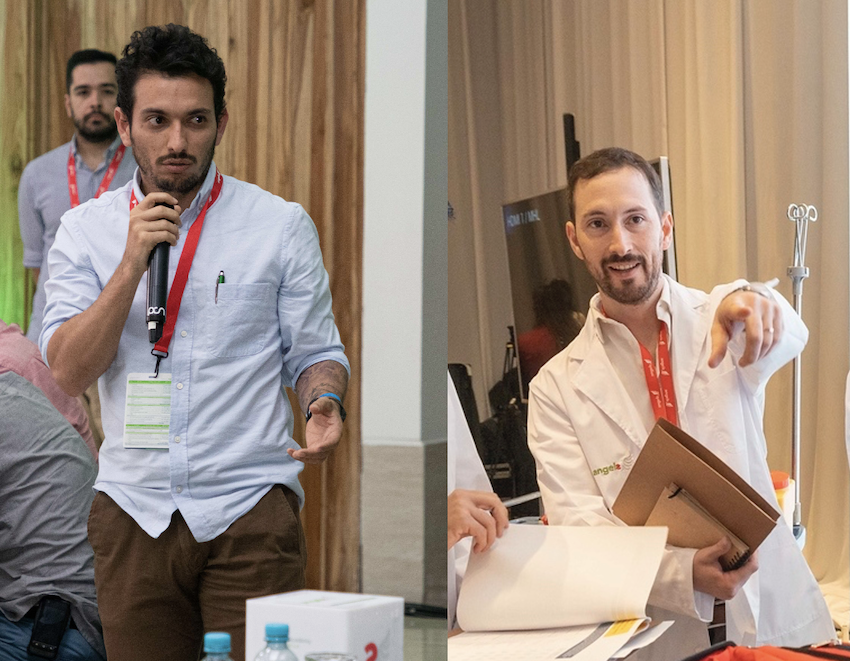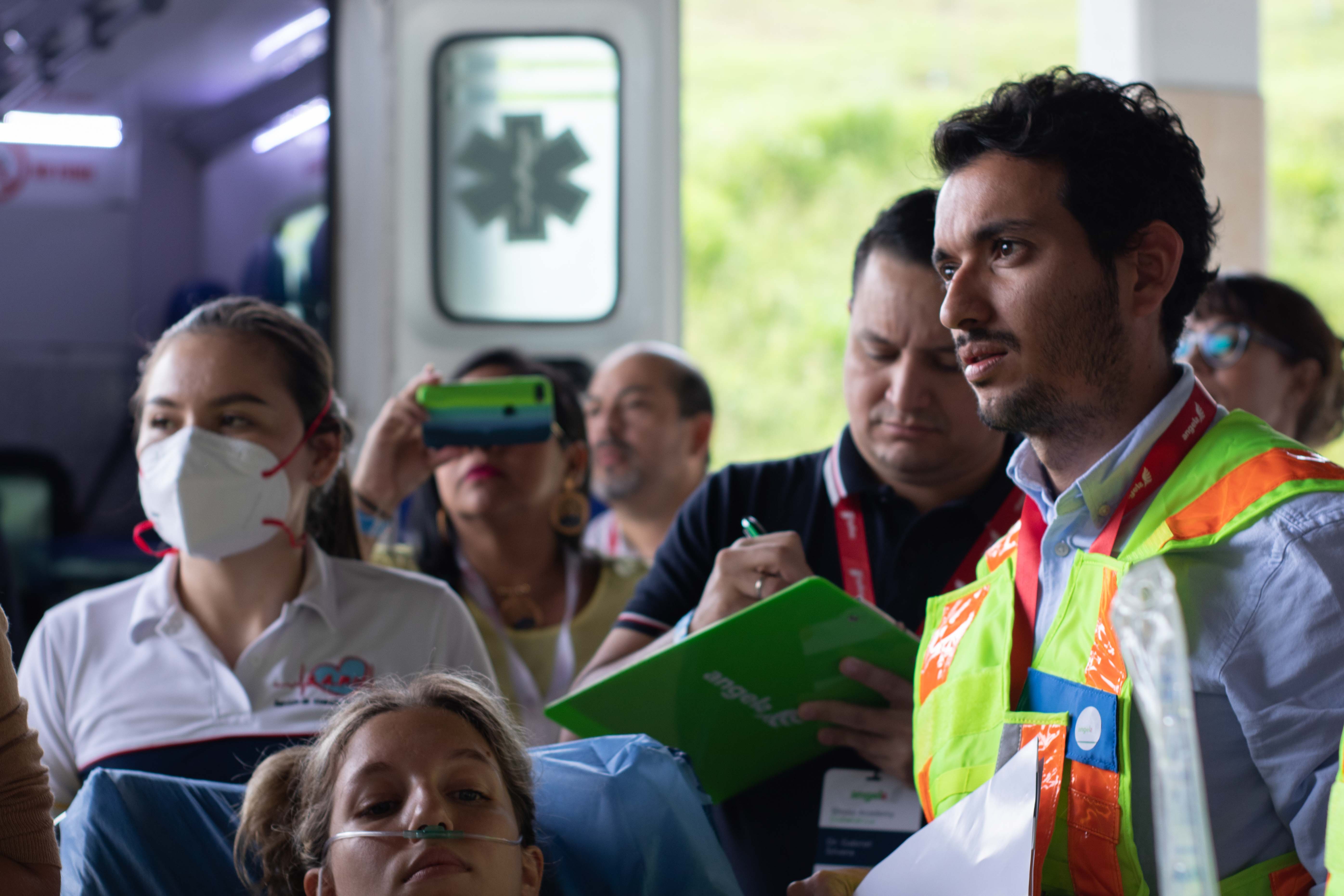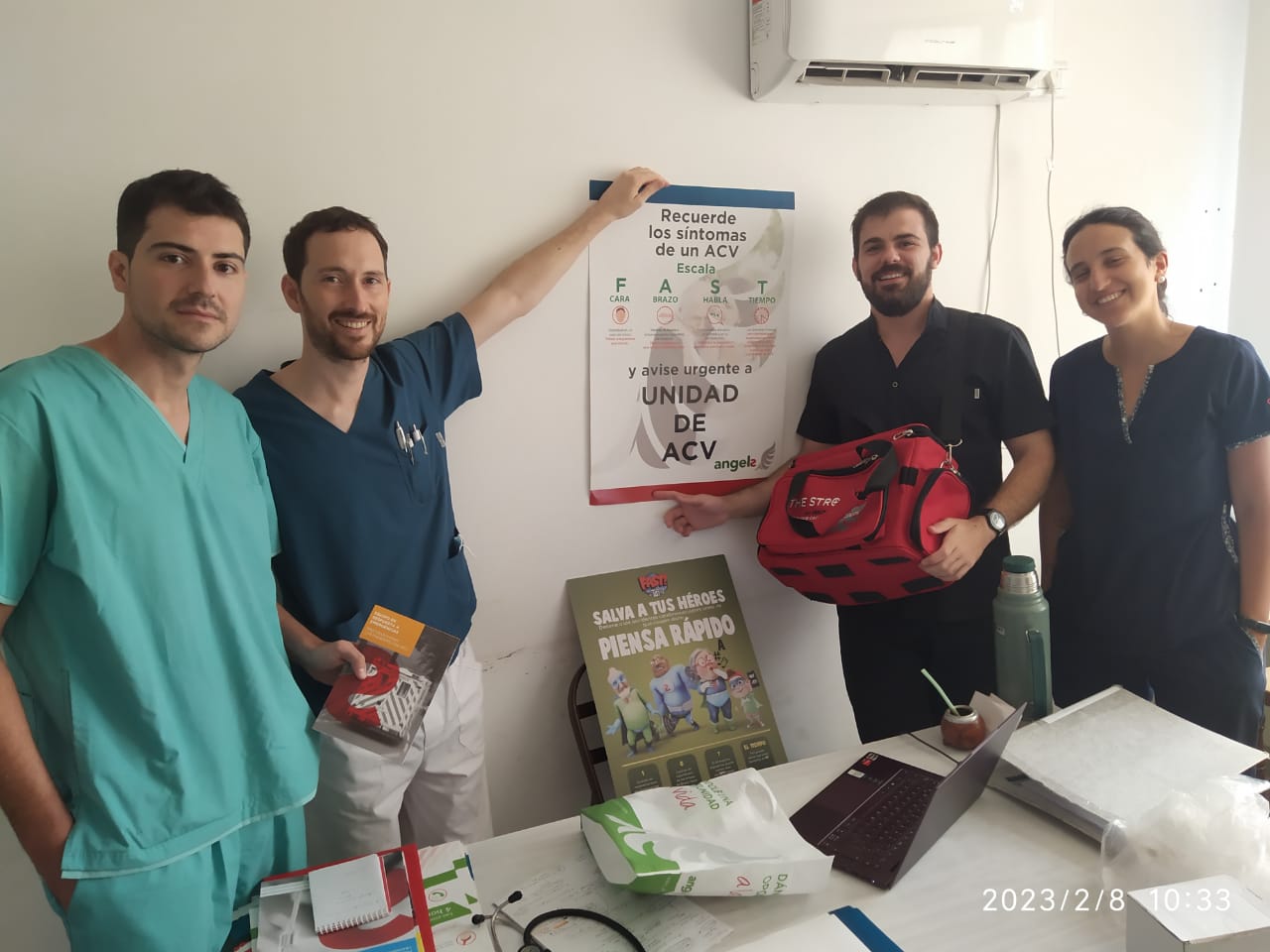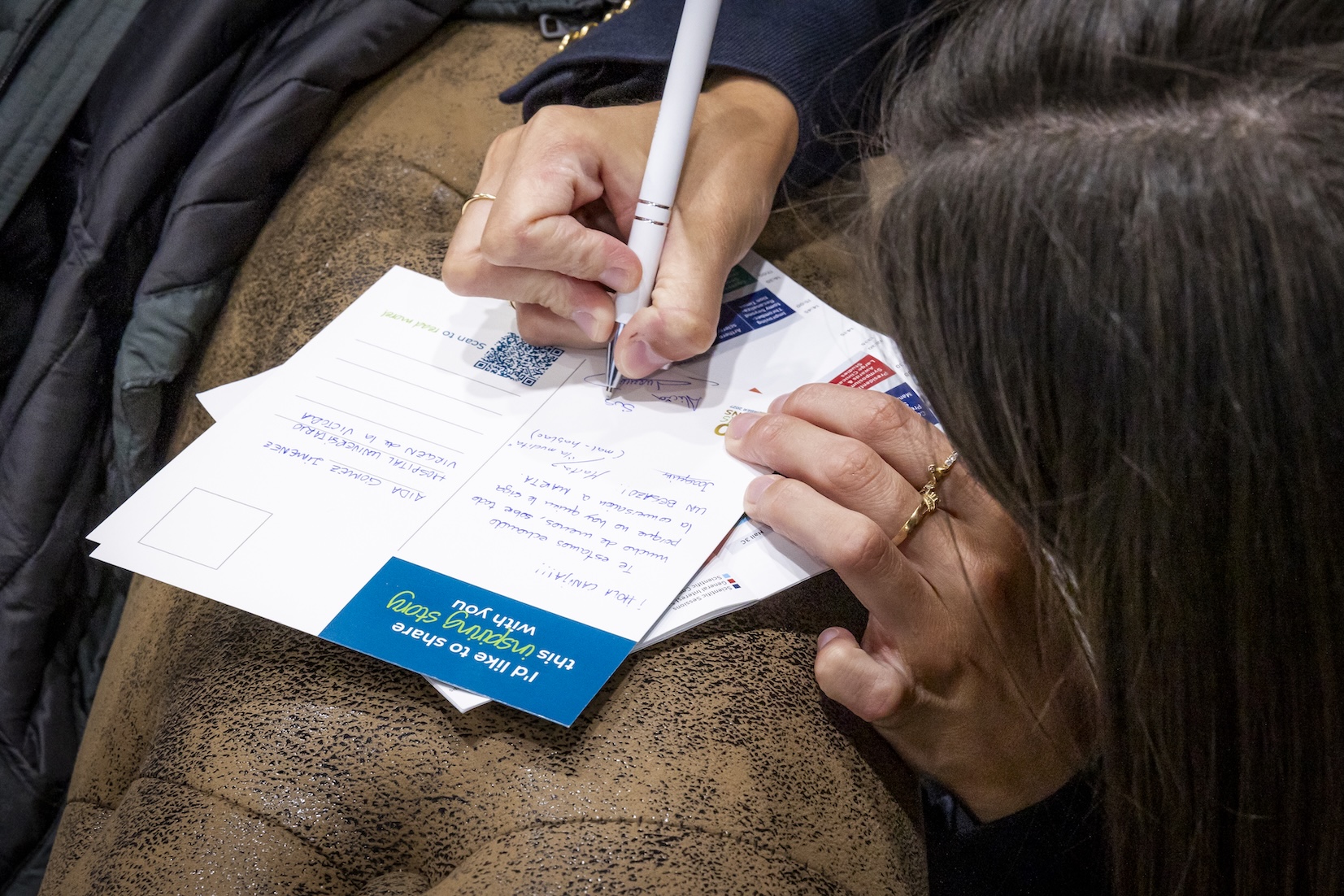
MENTOR는 Oprah Winfrey가 "자신의 희망을 볼 수 있는 사람"이라고 말합니다. 콜롬비아 보고타에 있는 Simón Bolívar Hospital의 신경과 전문의 Claudio Jiménez 박사가 젊은 아르헨티나 의사인 Ignacio Girolimini 박사를 만났을 때 희망은 첫 번째였습니다. 라이오넬 메시와 매우 유사한 모습을 본 직후.
"이그나시오에게는 의지가 있었고 그의 희망은 분명했습니다."라고 그는 말합니다.
두 의사는 ROPU South America Mentoring Program의 지원 하에 만났습니다. 이 프로그램은 남미의 Angels 팀 리더인 Deborah Ferreras와 심혈관 의학 관리자 Alejandro Lakowsky가 관리합니다.
Girolimini 박사는 작은 마을에서 뇌졸중 치료를 개선하고자 했습니다. 보고타에 있는 자신의 병원에서 뇌졸중 치료를 변화시킨 Jiménez 박사가 그의 멘토로 임명되었습니다. 이 문제의 다른 곳에서는 이러한 두 의사에 대해 자세히 알아볼 수 있습니다. 이 멘토십이 어떻게 그들의 말로 전개되었는지는 다음과 같습니다.

Claudio Jiménez 박사:
저는 우리가 우리 기관에서 할 수 있었던 모든 업무와 우리가 얻은 경험이 공유될 때 실제 가치를 달성한다고 믿습니다. 그렇다면 라틴 아메리카에서 뇌졸중 센터와 네트워크를 구축하는 데 도움이 되는 멘토링 프로그램에 참여할 가치가 있다고 생각하는 이유는 무엇입니까? 그 이유는 이러한 것들이 필요하거나, 의약품 인류에게 공통의 이익일 뿐만 아니라, “우리”와 “우리”의 좁은 경계를 넘어 성공적인 경험을 공유하는 것이 의무이기 때문입니다.
Ignacio를 만났을 때, 제가 생각한 첫 번째는 “그는 Messi처럼 생겼습니다!”였습니다. 다음 생각은 아무것도 하지 않고 뇌졸중을 앓는 사람들을 위한 치료 과정을 바꾸고자 하는 우리 모두에게 똑같다는 것이었습니다 뇌졸중. 우리 팀, 그리고 마지막으로 뇌졸중 센터 구축을 시작할 때도 똑같이 의심스러웠습니다. 그래서 우리는 저를 위한 것이 이러한 유형의 벤처의 전제에서 시작되는 대화를 시작했습니다.
"이그나시오, 계획은 실행 가능하지 않다는 것을 수천 번 알려줄 것입니다. 이를 달성할 때까지 할 수 있다고 계속 믿어야 합니다. 왜냐하면 이를 달성할 것이기 때문입니다.”
그리고 이 공황의 표현이 엄청난 희망과 섞여서 그는 저에게 다음과 같이 말했습니다. “직장에 가자, 이미 단서를 가지고 있어!”
저는 한 사람이 자신이 "우리의 존재의 중요한 순간"으로 정의하는 것을 돌보는 데 시간을 투자할 의향이 있음을 보았습니다.
Sheila Martins 박사는 항상 “의지와 단층 촬영”이 뇌졸중 치료에 필요한 전부라고 말합니다. Ignacio는 의지가 있었고 그의 희망은 분명했습니다. 저는 이것이 우리를 움직이는 두 가지 요인이라고 굳게 믿습니다. 의지와 희망이 있는 곳에 성공을 위한 기본적인 도구가 있기를 바랍니다. 그런 다음 실패를 견디고 저항을 극복하는 방법을 배웁니다. Ignacio는 이러한 기본적이고 필요한 특성을 가지고 있었습니다.
매우 중요하고 Ignacio가 절대적으로 자연스러워하는 또 다른 것은 리더의 업무가 핵심이라는 것이지만, 그 비결은 모범이 되는 것입니다. 좋은 리더일 때 사람들은 지시를 따르지 않고 정장을 따른다고 말합니다. Ignacio는 항상 뇌졸중 코드에 대한 전화에 기꺼이 응답하는 첫 번째 사례이며, 이는 전체 그룹, 즉 동일한 일을 하고 환자를 돕기 위해 지치지 않고 일하고자 하는 욕구에 영향을 미칩니다.
뇌졸중의 어려움은 보편적입니다. 이는 항상 치료 프로토콜 구현하고자 하는 한두 명의 사람들에서 시작됩니다. 그러고 나서 기술적인 한계가 있는데, 다행히도 이그나시오의 사례에서는 그의 병원에 CT 스캐너를 기증하여 해결되었습니다.
급성 허혈성 뇌졸중 환자를 재조명하기 위한 약물 투여가 한 가지입니다. 데이터를 수집하고, 관리하고, 분석하고, 팀이 성장하도록 사용하는 것도 또 다른 일입니다. 한 명의 의사가 임상 작업을 수행한 다음 밤이나 주말에 Excel 테이블에 데이터를 로드해야 하는 것은 장벽입니다. 다시 한 번 Ignacio는 그 일을 맡았지만, 인구가 뇌졸중 시스템을 인식하는 방법을 배우고 환자 수가 증가함에 따라 이는 감쇠할 수 없게 될 수 있습니다.
그 후 환자가 사회보장을 받거나 이를 치료할 수 없는 병원에 도착한 후, 단층촬영을 실시하는 센터로 이송해야 하는지에 관계 없이, 우리 지역 내 의료 시스템의 모든 한계가 있습니다. 이것이 바로 우리가 뇌졸중 네트워크에 대해 이야기하는 데 시간을 보내는 이유입니다. 네트워크는 급성 뇌졸중에서 재관류 요법에 대한 끔찍한 접근 장벽을 없애는 유일한 방법입니다.
Angels 멘토링 프로그램은 아름다운 이니셔티브 그 이상이며, 글로벌 니즈입니다. 의사들의 경험은 의학 저널의 연구를 넘어 공유되는 것이 매우 중요하며, 이는 물론 과학 개발의 핵심입니다. 그러나 우리는 우리의 경험을 필요로 하는 사람들과 그룹, 특히 자원에 접근하기 어려운 지역사회에 직접 이전하는 데 투자해야 합니다.
저는 학부 과정부터 신경과 전문의 및 신경생리학자로서의 교육에 이르기까지 직업 생활 전반에 걸쳐 멘토를 가졌습니다. 하지만 오늘 제가 가진 기술을 개발하고 제가 가지고 있는 도구를 찾는 데 도움을 준 사람의 이름을 말해야 한다면 브라질 포르투알레그레의 신경과 전문의인 Liselotte Menke Barea 박사입니다. 그녀는 제가 그곳에서 교육을 받았을 때 서비스 책임자였으며, 환자를 대하는 데 있어서 그녀의 성격, 규율 및 섬세함은 제 의약품 행위 방식을 완전히 변화시켰습니다.

Ignacio Girolimini 박사
이 멘토링 프로그램에 지원하도록 동기를 부여한 것은 무엇입니까? 무엇을 달성하고자 했습니까?
첫 번째 사례에서 우리는 진행 방법, 노력을 단결하고 수행해야 했던 업무의 다중성을 질서하는 방법에 대한 명확한 가이드라인 없이 스스로를 발견했습니다. EMS 의사인 Carlos Ruffini 박사는 제가 멘토링 프로그램을 위한 프로젝트를 발표하라고 제안했습니다.
우리는 우리 병원에 뇌졸중 병동을 설립하는 프로젝트를 조직하고 통합하는 데 가이드를 받고자 했습니다.
협회가 시작되기 전에 Jiménez 박사에 대해 무엇을 알고 계셨습니까?
함께 일하기 전에는 Jiménez 박사나 보고타에서 그의 인상적인 일을 몰랐습니다.
Jiménez 박사와의 첫 번째 회의와 그에 대한 첫 인상을 설명해 주십시오.
Claudio를 만나는 것은 훌륭한 경험이었습니다. 그는 헌신, 지식, 열정이 많고 무엇보다도 자신과 비슷한 상황에서 동료들에게 공감하는 사람입니다.
그를 성공적인 멘토로 만드는 어떤 자질을 그에게 관찰했습니까?
그의 헌신과 헌신은 라틴 아메리카에서의 우리의 현실이 변할 수 있고 변해야 할 수 있으며, 뇌졸중 뇌졸중 환자들에게 종합적이고 양질의 치료를 제공하고자 할 수 있다는 확신을 가지고 있습니다.
그의 멘토링이 귀하의 병원에서 뇌졸중 치료의 혁신에 어떤 영향을 미쳤습니까?
뇌졸중 병동을 설립하는 데 도움을 주신 Jiménez 박사의 지원에 매우 감사드립니다. 임시적인 1인칭 이니셔티브가 아니라 업무 팀으로서 우리 자신을 통합하는 데 매우 도움이 되었습니다.
이러한 유형의 프로그램의 가치를 어떻게 생각하고 있으며, 자신을 젊은 의사의 미래 멘토로 생각합니까?
이와 같은 프로그램은 무엇보다도 복잡한 대규모 도시나 센터에서 멀리 떨어진 우리를 지원하는 데 필수적입니다. 저는 그들이 우리에게 준 모든 것을 환원할 준비가 되어 있으며, 우리의 경험을 공유하게 되어 기쁩니다.




